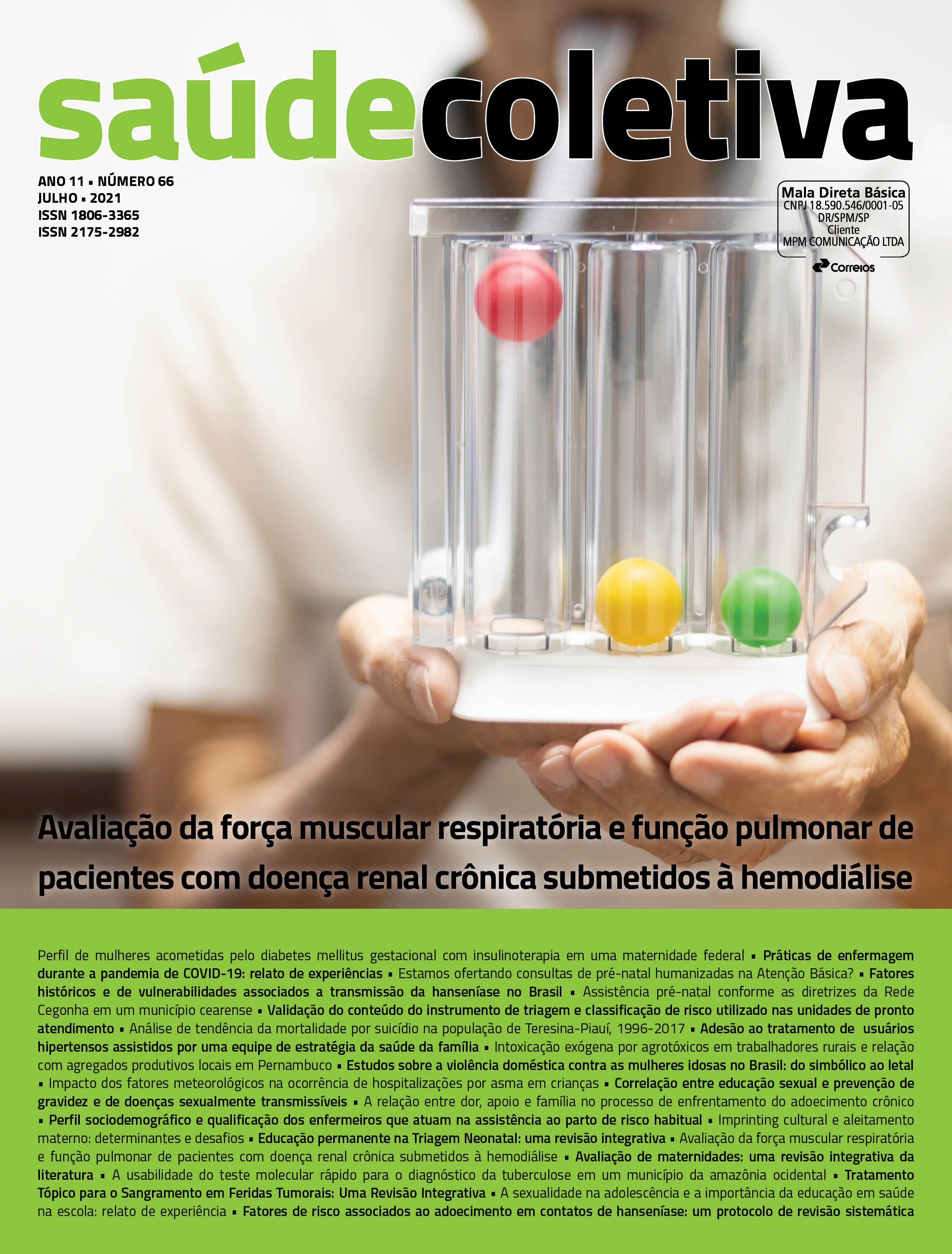Degree of nicotine dependence in the smoking control program in Maringá: case study
DOI:
https://doi.org/10.36489/saudecoletiva.2021v11i66p6633-6644Keywords:
Smoking Prevention, Smoking, Tobacco Use DisorderAbstract
Objective: To identify nicotine dependence in users who did not stop smoking after the Smoking Control Program in a Gold Seal Health Unit. Method: Quantitative case study, carried out in a Gold Seal Basic Health Unit of Maringá-PR, in 2020. The participants were users who attended all sessions of the program in 2018 and 2019, who did not stop smoking after the intervention. For collection, we used an interview guided by a structured instrument. The data was organized by Microsoft Excel 2016 and descriptively simple statistics were analyzed. All ethical precepts were respected. Results: 17 people participated in the study, 64.7% female, 58.8% over 60 years of age, 35.3% married, 47.05% with low schooling and 29.4% with a high nicotine dependence. No significant differences were found in the association between demographic variables and the level of dependence. Conclusion: The high level of nicotine dependence in individuals who attend the program may help actions for smoking cessation favoring strategies to increase participation in smoking control groups.







